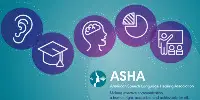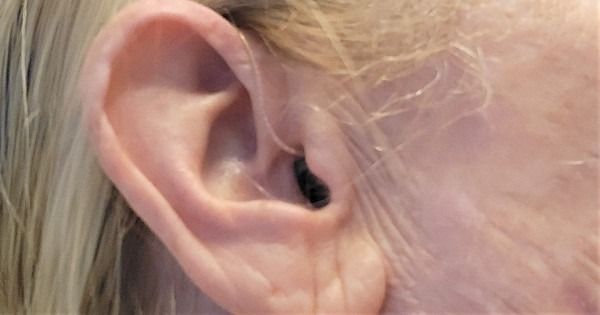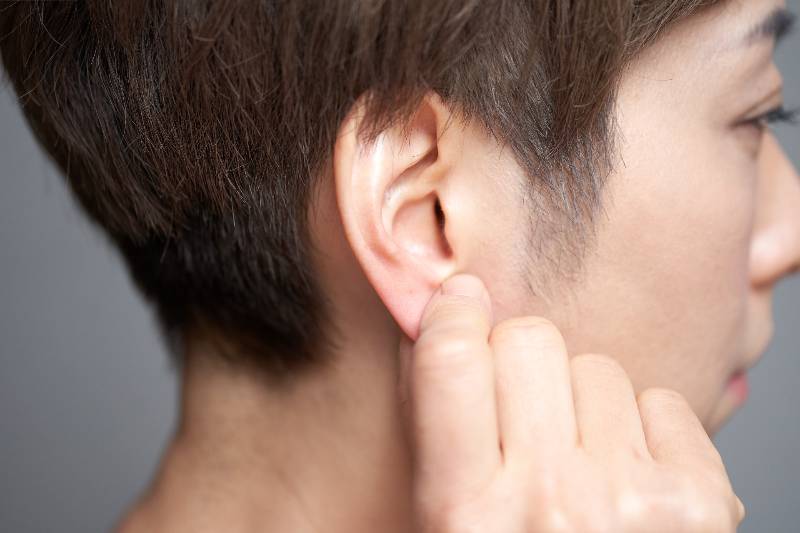Introduction
Imagine the orchestra of life gradually tuning down until the world around you becomes a muffled echo. For many seniors grappling with Otosclerosis, this is a daily reality. Otosclerosis, a condition that affects the bones of the inner ear, is a leading cause of adult hearing loss. Despite its prevalence, understanding of the condition and its impact on daily life is limited, particularly among our older population. This blog post aims to delve deeper into Otosclerosis, focusing not only on the medical aspects but also on how it affects individuals and their families, particularly in the context of school, socialization, and resilience.
While research has advanced our understanding of Otosclerosis, much of the focus has been on adults, leaving pediatric Otosclerosis relatively uncharted territory. However, this condition does affect children, impacting their academic performance and socialization. As we explore this area, we will also look at the resilience of teenagers with Otosclerosis, their coping strategies, and the support mechanisms available for them. Furthermore, we will delve into the educational accommodations designed for students with Otosclerosis and the strategies parents can adopt to support their child.
Drawing upon the latest research and firsthand stories from parents, we hope to create a comprehensive understanding of this complex condition. Join us as we dive into the world of Otosclerosis, shedding light on its challenges and highlighting the resilience of those living with it.
This journey isn’t just about Otosclerosis as a medical condition. It’s about the human experience — understanding the struggles and triumphs, providing a guiding light for parents navigating the path of Otosclerosis, and recognizing the resilience of our children. We hope this guide helps you better understand Otosclerosis and its impacts on different life stages.
SUDDEN HEARING LOSS – SYMPTOMS, CAUSES AND TREATMENTS
How Otosclerosis Affects School Performance and Socialization
Otosclerosis, even though it primarily affects adults, can also occur in children. This hearing impairment poses a unique set of challenges in school settings. It can result in decreased academic performance and social isolation if not adequately addressed. Due to the auditory nature of much of the teaching in schools, students with Otosclerosis may struggle to keep pace with their peers.
Children with Otosclerosis may miss out on essential details in classroom instructions, impacting their comprehension and subsequent performance in tests and assignments. This struggle is often misunderstood as inattentiveness or lack of interest, leading to undue criticism or punishment. Moreover, the inability to follow conversations can lead to social isolation, as children feel left out and struggle to form and maintain friendships.
Group activities, a significant aspect of school life, can pose a challenge for children with Otosclerosis. They may find it difficult to participate in group discussions, collaborative projects, or team sports, leading to feelings of exclusion. This condition can also impact a child’s confidence and self-esteem, affecting their overall personality development.
Pediatric Otosclerosis: A Review of Current Knowledge and Research
Pediatric Otosclerosis is a relatively less explored field within the broader domain of Otosclerosis. The limited research on this topic has often resulted in delayed diagnosis and intervention, negatively impacting a child’s development. However, in recent years, there has been a significant push towards understanding the mechanisms and impacts of pediatric Otosclerosis.
Recent research indicates that early onset Otosclerosis can have genetic underpinnings. This finding has significant implications, suggesting the importance of genetic screening in families with a history of Otosclerosis. Early detection can pave the way for timely intervention, minimizing the condition’s impact on a child’s academic and social life.
Moreover, advances in imaging technology have improved the diagnostic capabilities for Otosclerosis, allowing for earlier and more accurate identification of the condition. Research is also looking into novel treatment methods. For instance, studies are exploring the role of bisphosphonates, a type of drug typically used to treat osteoporosis, in slowing down the progression of Otosclerosis.
Despite these advancements, gaps remain in our understanding of pediatric Otosclerosis. The future of research lies in studying the long-term impacts of the condition on children’s development and exploring innovative intervention strategies to enhance their academic and social outcomes.
Parenting a Child with Otosclerosis: Stories and Strategies
Raising a child with Otosclerosis is an emotional journey, filled with challenges, learnings, and moments of triumph. Parents are the primary advocates for their children, ensuring they receive appropriate care and support in all spheres of life. This journey involves fostering an environment that encourages children to embrace their unique abilities and empowers them to overcome obstacles.
Parents must invest time in understanding Otosclerosis – its symptoms, progression, and potential interventions. Regular medical consultations and staying abreast of the latest research can aid in managing the condition effectively. Building a network with other families dealing with Otosclerosis can also be beneficial, offering a platform to share experiences and gain insights.
One of the most powerful tools at a parent’s disposal is open communication. It’s important to talk to children about their condition, helping them understand Otosclerosis in an age-appropriate manner. This can alleviate their fears and enable them to articulate their needs and feelings. It also prepares them to educate their peers and teachers about their condition, fostering empathy and understanding.
Moreover, advocating for their child in school is essential. This could involve working closely with teachers to ensure the child is getting the necessary academic support and creating an inclusive environment that accommodates their social needs.
Tinnitus: why it’s still such a mystery to science
Promoting Resilience in Teens with Otosclerosis
Resilience is the capacity to adapt well in the face of adversity. For teens with Otosclerosis, fostering resilience is key to navigating the challenges they face. These individuals often show remarkable strength and adaptability, employing various coping strategies to manage their condition.
Support systems play a crucial role in fostering resilience. This includes parents, teachers, friends, and healthcare providers. These individuals can provide emotional support, offer practical advice, and help the teen feel understood and valued. Encouraging teens to express their feelings and concerns can also foster resilience, helping them process their experiences.
Moreover, promoting self-advocacy can empower teens with Otosclerosis. This includes equipping them with the knowledge and skills to express their needs and rights, especially in educational and social settings. It’s also important to highlight their strengths and accomplishments, helping them see beyond their condition and fostering a positive self-image.
Additionally, engaging in activities that they enjoy and excel at can provide a sense of achievement and normalcy. Whether it’s art, sports, or coding, these pursuits can boost their confidence and provide an outlet for self-expression.
Sound Oasis® Bluetooth® Tinnitus Sound Therapy System®
Discover the ultimate solution for managing tinnitus with Play. This innovative device offers you 20 meticulously crafted built-in sounds, specifically recommended by esteemed audiologists worldwide. Dive into a world of soothing melodies and find respite from the challenges of tinnitus.
Immerse yourself in an audio oasis with Play’s integrated Bluetooth technology. Stream your favorite sounds or music wirelessly with a Bluetooth range of up to 30 feet (10 meters). Experience the freedom of wireless connectivity as you create your own personal sanctuary of sound.
Enhance your relaxation journey with the Sound Oasis Professional Tinnitus Frequency App, included with Play. Immerse yourself in a diverse range of calming sounds meticulously designed to alleviate tinnitus symptoms. Unwind, find serenity, and embark on a path towards improved sleep with this powerful companion.
Enjoy uninterrupted tranquility with Play’s versatile power options. Utilize the built-in rechargeable battery, providing you with 4-5 hours of continuous use per charge. Alternatively, keep Play plugged in using the included charging cable for extended periods of blissful sound. Dive into the soothing world of Play and experience the transformative benefits it brings to managing tinnitus.
Educational Accommodations for Students with Otosclerosis
Accommodations in educational settings are crucial for students with Otosclerosis. These accommodations can enable them to access the curriculum fully, participate in school activities, and foster social inclusion. However, the key lies in understanding that each student’s needs are unique and the accommodations should be tailored accordingly.
One of the primary accommodations is the use of assistive listening devices (ALDs). These devices can amplify sound and reduce background noise, aiding in better comprehension of instructions and discussions. Teachers can also wear a microphone that directly transmits their voice into the student’s hearing device, ensuring they don’t miss out on any crucial information.
Additionally, preferential seating can be beneficial. By sitting closer to the teacher, students with Otosclerosis can better hear the instructions and explanations. Visual aids can also supplement auditory information, enhancing understanding and retention.
Moreover, modifications in testing conditions, such as providing additional time or quiet spaces for exams, can help accommodate students with Otosclerosis. Teachers can also use alternative assessment methods that rely less on auditory skills and more on written or visual tasks.
It’s also crucial to foster an inclusive environment in the classroom. This involves educating peers about Otosclerosis and promoting empathy and understanding. Organizing activities that allow students to experience the challenges of hearing loss can be an effective way to cultivate empathy.
Conclusion
Otosclerosis is a complex condition that goes beyond medical definitions. It affects every aspect of an individual’s life, from school performance to social interactions. Whether it’s a child struggling to follow lessons in class or a teen striving to fit in with peers, the impacts of Otosclerosis are profound and far-reaching.
However, amidst these challenges, there are stories of resilience, tales of individuals navigating life with Otosclerosis with strength and determination. These stories offer hope and inspiration, reminding us that with the right support and accommodations, individuals with Otosclerosis can lead fulfilling lives.
Parents play a crucial role in this journey. Their efforts, from understanding the medical aspects of Otosclerosis to advocating for their child in school, are instrumental in their child’s success. Their stories and strategies offer valuable insights for other families dealing with Otosclerosis.
Research and medical advancements also play a vital role. Current knowledge and ongoing research on pediatric Otosclerosis have illuminated the genetic links and improved diagnostic capabilities. These developments are key to enhancing our understanding of the condition and improving outcomes for children with Otosclerosis.
Ultimately, the journey of understanding and managing Otosclerosis is multifaceted. It’s a journey that involves individuals, families, educators, healthcare providers, and researchers. By working together, we can strive to create a world that understands, supports, and empowers individuals with Otosclerosis.








